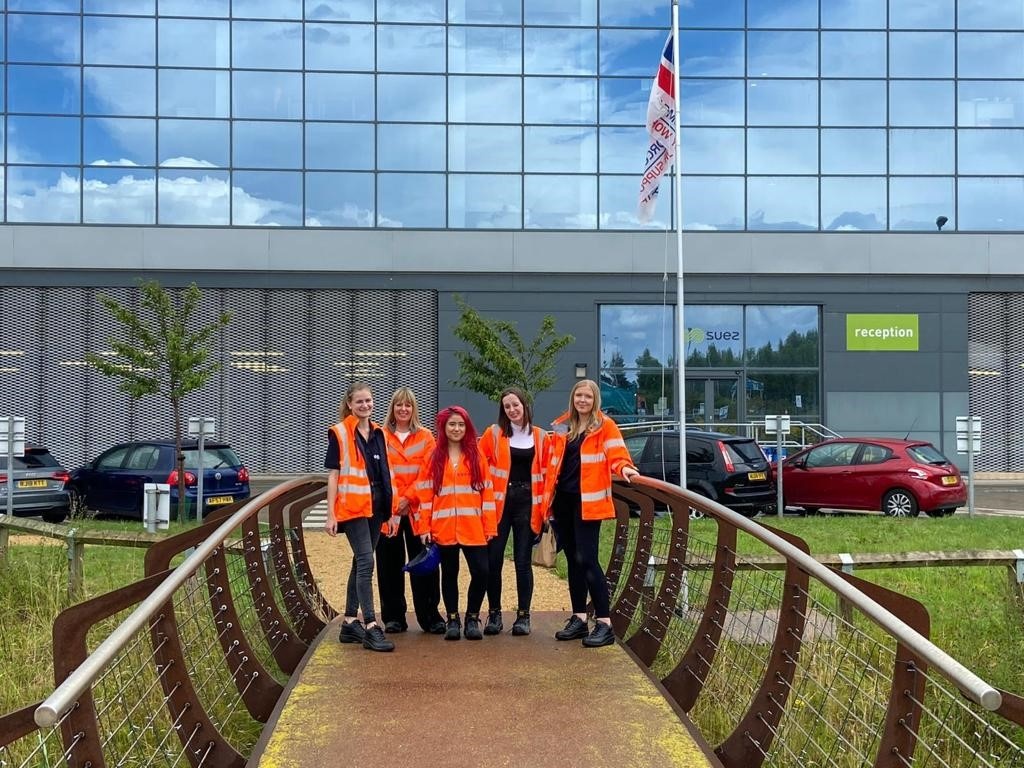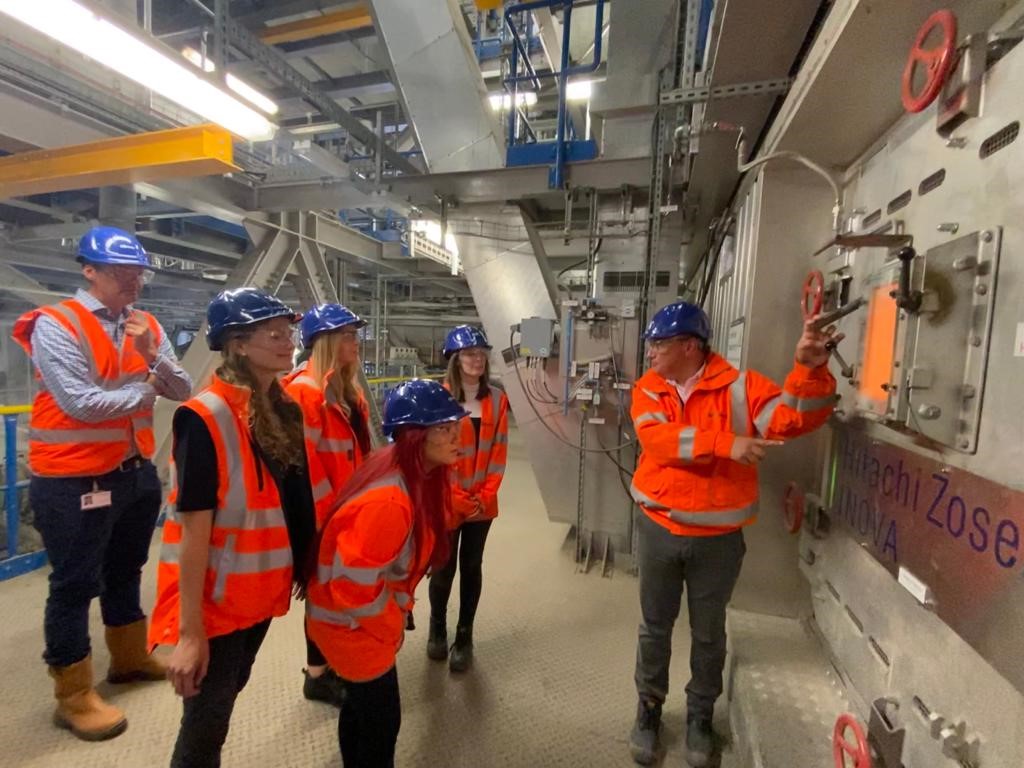Hiring interns – as that first rung gets higher
4th August 2021
For young people, high summer should be a rite of passage marked by exams, graduation and perhaps travel, or a first real experience of the world of work. But just as the pandemic has taken away many freedoms and disrupted their education, the aftershocks are impacting the life chances of young people, not least new interns and graduates.
They find themselves in a very tough jobs market, prompting fears of a ‘lost generation’ of talent and promise.
Kickstart programme
The government’s Kickstart programme – offering high-quality six-month work placements for 16-24-year-olds who are on Universal Credit – is badly needed and very much to be welcomed. So far, SUEZ recycling and recovery UK has taken on 20 of 60 approved roles that will provide the valuable experience we hope will help them overcome the risks they face of long-term unemployment.
This is in addition to our long-running apprenticeship and graduate programmes. Twice a year, we recruit graduates – up to 10 per annum – who go on to gain broad experience in different divisions. This structured scheme with individual mentoring and support is the springboard to a fulfilling career, and many have become senior managers.
A decade of internship programmes
We have also run a scheme for interns for a decade or more. Akin to our approach to apprentices and graduates, we are keen that they get to learn about the different facets of our business as well as their professional area, for a more rounded experience. So, internships are of immense value to the individuals – most of them graduates – and to our company.
We now provide opportunities for around 20 interns each year in a wide range of settings, from engineering and other technical roles to human resources, legal, commercial, IT and communications.
All our internships are for less than 12 months, and typically involve a one-off piece of work, project or short-term role. While it takes more time and effort to set up a successful internship, the mutual advantages are worth it.
First rungs in a workplace
For most interns, this is their first insight into a large commercial organisation. That understanding alone can help inform a future career. In addition, we ensure that their assignment involves real-world work of intrinsic value, and they receive clear and supportive direction. That first ‘work experience’ entry on a CV, and a positive reference from a national company, means a lot to a new graduate trying to show they’re work-ready, differentiates them from the competition, and helps them navigate the world of work.
We also make a point of orientating our interns so they can network within our organisation, visit working sites where practicable, and get some exposure to other departments. We give them access to senior leaders and the strategic workings of the organisation where we can.
Last week I invited four of our interns to join me on Management Safety Visits in the Southwest area of our business where they were able to gain insights into the end-to-end workings of waste management.

SUEZ interns and Dr Tracey Leghorn visiting Severnside Energy Recovery Centre
Our interns typically earn the pro rata equivalent of between £17,000 and £22,000 pa.
Interns bring energy and ideas
Make no mistake, SUEZ benefits too. Our interns are keen, have knowledge close to the cutting edge of their specialist subjects, and they bring fresh energy, ideas, and a different dynamic to the departments they work in. Their work is valuable and appreciated by the team and line managers. You can learn about the lived experiences of four of our interns in a recent webinar discussion held as part of our regular internal webinar series.
Matching the intern to the task – and combining elements where necessary to make the work as interesting as possible – is important. Even more so, is ensuring that the line manager has the capacity for the short, but relatively time-intensive, responsibility of guiding an entry-level recruit.
Disable people’s employment
Internships are also an opportunity to partner with organisations active in the communities we serve – like Leonard Cheshire, the national charity supporting people with disabilities. Currently, it provides about a quarter of our interns.
Disabled people’s employment has been more heavily impacted by the pandemic than other groups’. In recent polling – reported in Locked out of the labour market – 20% of employers in the UK admitted they were less likely to employ a disabled person, and only 21% had recruited a disabled person in the past 18 months.
Success stories
Leonard Cheshire advisors help us ensure we make any adjustments necessary to the workplace environment or ways of working, which are often more modest than employers anticipate. An HR intern, now on summer holiday from her business management course, is doing great work for our wellbeing, inclusion and diversity programme – areas relevant to her future career plans. The work involves research, writing reports, presentations, and meetings with colleagues across the company.
Last summer, after her very successful assignment, an environmental studies graduate referred by the charity cancelled her travel plans amid the lockdown. Such was the quality of her work, we asked her to come back for a permanent post, in our IT department. We’ve not only gained a highly valued new colleague, but also a volunteer Sustainability Champion, leading on initiatives to enhance the environment at her workplace.
Working with future generations
Our growing relationship with Manchester Metropolitan University has also opened up opportunities for two new internships. Honours graduates in Interior Design, they will help us shape the layout of the new Renew Hub we are developing for our contract with Greater Manchester Combined Authority. The Hub will serve a network of Renew shops selling recovered furniture and household appliances, and accommodate repair and upcycling work pods, skills training, a community café, and other activities. The internships follow on from a joint research project with final-year MMU business students into European best practice and public attitudes to re-use.

The group inside SERC having a look at the furnace
These graduates are among more than 350,000 who have finished university and college courses this year. The Office for National Statistics reports that 86.4% of working-age graduates were employed in 2020. That was 1.1% down on 2019. Two out of three (66%) were in high-skilled employment. For disabled graduates, the proportions in employment and high-skilled jobs were significantly lower, at 73.4% and 52%, respectively.
The equivalent figures for 2021 cannot be expected to improve. A recent opening for an engineering intern at SUEZ attracted more than a hundred applicants, and that was just from sharing the opportunity internally.
More than ever, we employers have a social responsibility as well as a strong business case for giving young people a leg up onto that first all-important rung of the career ladder.
Tweet
- #SUEZcareers
- career development
- careers
- COVID-19
- entry level jobs
- Graduates
- Interns
- Internship
- internships near me
- wellbeing
